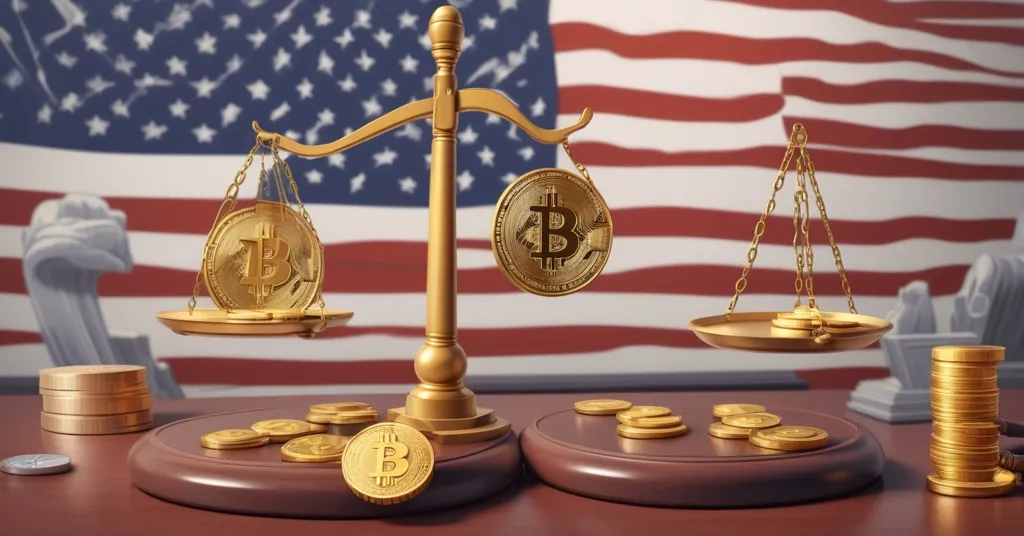SEC Postpones XRP and Dogecoin ETF Decisions Amid Regulatory Shifts

SEC Delays Decisions on XRP and Dogecoin ETFs Amid Regulatory Shifts
The U.S. Securities and Exchange Commission (SEC) has postponed decisions on several cryptocurrency ETFs related to XRP and Dogecoin, reflecting ongoing regulatory scrutiny.
- SEC delays XRP and Dogecoin ETFs
- Regulatory environment under Trump administration
- Impact on crypto market and investors
SEC Delays
The SEC has delayed its decisions on the 21Shares Core XRP Trust, the Grayscale XRP Trust, and the Grayscale Dogecoin Trust. These delays are part of the SEC’s standard review process to assess compliance with regulations, particularly under Section 6(b)(5) of the Exchange Act, which focuses on preventing fraud and protecting investors. The SEC’s action to extend the review period up to 240 days per application underscores a cautious approach to ensuring these financial products meet stringent legal and policy standards.
The SEC has solicited public comments on these ETFs, seeking to gather diverse perspectives on the proposed rule changes. This step is indicative of the regulator’s commitment to thorough evaluation and public engagement before finalizing any decisions. The delays reflect the complexities involved in integrating cryptocurrencies into traditional financial systems, as ETFs are investment vehicles that allow people to buy and sell shares representing a basket of assets, like stocks or cryptocurrencies.
Political Shifts
Under the Trump administration, which returned to office in January 2025, there has been a noticeable shift towards a more crypto-friendly regulatory environment. This administration has closed several lawsuits against crypto firms and hosted public roundtables to discuss future rules for the industry. The establishment of a Strategic Bitcoin Reserve and a U.S. Digital Asset Stockpile highlights a strategic approach to managing digital assets, treating bitcoin as “digital gold” due to its scarcity and security.
This crypto-friendly stance contrasts with the previous Biden administration, which, despite approving spot Bitcoin ETFs in January 2024 and spot Ethereum ETFs in May 2025 after legal battles, maintained a more cautious approach. The current delays suggest that while the Trump administration may be more open to crypto, the SEC remains focused on navigating the legal and policy landscape with care.
Market Impact
Recent market dynamics show significant volatility, with $118.32 billion worth of cryptocurrencies traded in the past 24 hours, marking a 22.55% drop from the previous day’s volume. Bitcoin maintains a dominant 63.3% share of the total market, reflecting its ongoing importance and influence. This volatility and Bitcoin’s role as a strategic asset could influence the SEC’s regulatory decisions and the broader crypto market’s direction.
The anticipation of an XRP ETF launch, as mentioned by ETF Store president Nate Geraci, adds to the forward-looking perspective on XRP’s potential mainstream integration. Despite the current regulatory hurdles, the interest in these ETFs from investors and enthusiasts alike signals a continued push for clarity and progress in the integration of cryptocurrencies into mainstream finance.
As we navigate these delays, it’s worth considering the broader implications for decentralization and financial innovation. While some might view these delays as a hindrance, others might argue they’re necessary to ensure the integrity of the market. Either way, the tension between innovation and regulation remains a central theme in the crypto space.
Key Questions and Takeaways
What did the SEC delay?
Decisions on cryptocurrency ETFs linked to XRP and Dogecoin, specifically the 21Shares Core XRP Trust, the Grayscale XRP Trust, and the Grayscale Dogecoin Trust.
Why did the SEC delay these decisions?
To review legal and policy issues raised by the proposed rule changes and to solicit public comments on these products.
How long can the SEC extend the review process?
Up to 240 days per application under securities law.
What other action did the SEC postpone?
The SEC also postponed action on Bitwise’s request to allow its planned spot Ethereum ETF to earn staking rewards.
How has the regulatory approach changed under the Trump administration?
The Trump administration has shown a more crypto-friendly stance, closing lawsuits and hosting public roundtables to discuss future rules.
When might we see early approvals according to James Seyffart?
James Seyffart predicts early approvals might not occur until late June or early July at the earliest, with final deadlines in October.
What was the regulatory landscape like under the Biden administration?
The SEC approved spot Bitcoin ETFs in January 2024 and spot Ethereum ETFs in May 2025 after legal battles.
How do these delays impact the crypto market and investors?
The delays contribute to market volatility, as seen with the recent $118.32 billion in trading volume, and affect investor sentiment and expectations regarding the future of cryptocurrency ETFs.
What are the broader implications for decentralization and financial innovation?
These delays highlight the ongoing tension between regulatory oversight and the push for innovation and decentralization in the crypto space, potentially slowing the integration of cryptocurrencies into traditional finance.
“Institution of proceedings is appropriate at this time in view of the legal and policy issues raised by the proposed rule change,” – SEC
“The action that’s out of the norm, no matter how crypto-friendly this SEC is,” – James Seyffart



